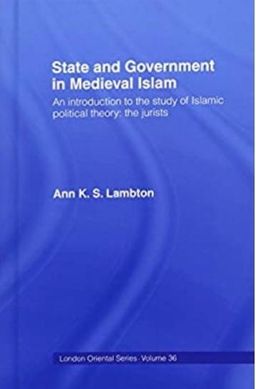Hakkında
Okurlar
1 okur okudu.
Sözler ve Alıntılar
The original political basis of the Shi’a was reinforced from two sources. The first was mystical speculation deriving from the eastern Hellenistic world and supplemented by metaphysical ideas and the doctrine of predestination. This mystical speculation issued in the philosophy of light, which the Shi’a, with the exception of the Zaydiyya, took over. According to this theory, as it developed among them, it was believed that, from the creation of Adam onwards, a divine light (sometimes called nur-i muhammadî) had passed into the substance of one chosen descendant in each generation and was present in ‘Ali and each of the imams among his descendants. By virtue of this divine light, it was believed that secret knowledge (hikma, hikmat) was granted to the imam and immunity from sin conferred upon him. He alone possessed the secret source of knowledge and his decisions alone were decisive and final. It was further believed that man could only acquire knowledge of divine mysteries by being joined to this light through the imams, who, in succession to the prophet, acted as intermediaries between man and God in the search for divine knowledge.
Sayfa 220Kitabı okudu
By the time al-Māwardī was writing the caliphate had ceased to exercise effective political power. The issue was no longer the substitution of a just for an unjust caliph. There was no question of the caliph re-imposing shar‘ī government: he did not dispose of the necessary power to do so. The problem with which al-Māwardī wrestled was how to bring the holders of power within the general framework of Islamic law. It was an intractable problem, but if the ideal of Islamic government was to be maintained and Islamic institutions were to be preserved, it demanded a solution. Accordingly,al-Māwardī, constrained by necessity and expediency, contrived new ways to bring existing conditions within the framework of the law while, in fact, disregarding the law. He recognised the problem and met it with decision. That he wrote with a full sense of responsibility cannot be denied, but whether the solution he proposed was wise or conducive to the wellbeing of the Muslim community in the long term, is a more doubtful matter. From now on the political obligation of the caliph as the executor of the sharī‘a was not only in practice, but also in theory, limited by the possibility of fulfilment.
Sayfa 102Kitabı okudu
In the circumstances of the time, it was no longer possible to preserve the fiction of the obligatory nature of a universal caliphate and so Ibn Taymiyya seeks a new basis for the state in order to enable the life of the community to continue. Starting from the basis that absolute sovereignty belongs only to God, he holds that sovereignty devolved on the death of the prophet upon all those who by their learning and virtue were the authorised interpreters of the law and therefore charged with adapting it to new conditions of time and place. This involved him, as it had involved others who had sought new solutions to old problems, in a reappraisal and reinterpretation of the history of the community.
Sayfa 145Kitabı okudu
İletiler
Henüz kayıt yok
Yorumlar ve İncelemeler
Henüz kayıt yok
